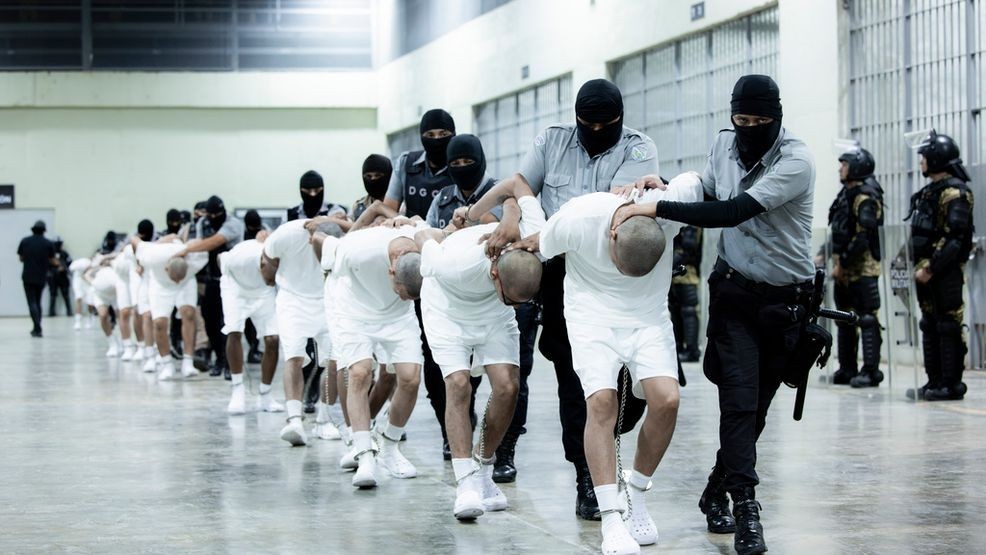Now Reading: ICE official admits it deported Maryland man due to ‘error’ but argues he shouldn’t return
-
01
ICE official admits it deported Maryland man due to ‘error’ but argues he shouldn’t return
ICE official admits it deported Maryland man due to ‘error’ but argues he shouldn’t return

WASHINGTON (7News) — The federal government admits it made a mistake when it deported a Prince George’s County resident to his native El Salvador even though an immigration judge had granted him protection from being deported six years ago. But in a court filing, a top U.S. Immigration and Customs Enforcement official said, despite that, the man should not be sent back to the U.S.
Kilmar Abrego Garcia of Beltsville, Maryland, who is married to a U.S. citizen, was sent to a notorious prison in El Salvador last month.
“On March 15, although ICE was aware of his protection from removal to El Salvador, Abrego Garcia was removed to El Salvador because of an administrative error,” said a court document filed by Robert Cerna, the Acting Field Office Director for ICE.
ALSO READ | Trump delivers on border promises; 113,000 arrests & 100,000 deportations
Cerna’s document accused Abrego Garcia of being an MS-13 gang member with a “prominent role,” something Abrego Garcia’s attorney contends police and the government have offered little evidence for, outside of that he was dressed in a Chicago Bulls hat and a hoodie when picked up by police in 2019. And also that a confidential informant had identified him as a member of an MS-13 group. Abrego Garcia was not charged with a crime at that time.
But the government said he was found to be a danger to the community in 2019 because of his alleged gang affiliation, and that was reaffirmed after an appeal. They also said in a 2019 filing that the source that accused Abrego Garcia of being in MS-13 was “proven and reliable.”
Cerna also argues that Abrego Garcia’s attorney has failed to meet several other standards that would immediately reverse his deportation, and that U.S. federal court now lacks jurisdiction over the case because Abrego Garcia is no longer in U.S. custody.
A court document filed Monday by Kilmar Abrego Garcia’s attorney seeks to force the U.S. government to immediately request his return from El Salvador.
The document states that in 2019, an immigration judge granted Abrego Garcia an order that prevented him from being deported from the U.S. unless the federal government was able to reopen his case and convince a judge to reverse the decision.
RELATED | Mistakenly deported Maryland man was MS-13 gang leader, not ‘father of the year’: Leavitt
“But Defendants found those legal procedures bothersome, so they merely ignored them and deported Plaintiff Abrego Garcia to El Salvador anyway, ripping him away from his U.S.-citizen wifeand his disabled U.S.-citizen child,” the document filed by Abrego Garcia’s attorney states.
[The federal government] sent Plaintiff Vasquez Sura to El Salvador knowing that he would be immediately incarcerated and tortured in that country’s most notorious prison; indeed, Defendants have paid the government of El Salvador millions of dollars to do exactly that,” the document goes on to state. “Such conduct shocks the conscience and cries out for immediate judicial relief.”
But a statement by Cerna in his court filing counters that although Abrego Garcia’s removal was an “oversight” and the result of an administrative error, “the removal was carried out in good faith based on the existence of a final order of removal and Abrego-Garcia’s purported membership in MS-13.”
The document filed by Abrego Garcia’s attorney states that before being sent to his native country of El Salvador, Abrego Garcia lived in Beltsville, Maryland, with his wife Jennifer and their five-year-old son, who has “hearing problems” and “is intellectually disabled and has a speech disorder.” The family includes two other children and both Abrego Garcia and Jennifer have full-time jobs, according to the court documents.
The document states that on March 12, Abrego Garcia was driving with his son in the backseat when he was pulled over by ICE officers and detained. After Jennifer arrived, he was allegedly taken away without explanation.
The document indicates Abrego Garcia was transferred to several detention centers, and Jennifer last heard from him on March 15, when he called and said he was being sent to CECOT prison in El Salvador, one of the largest and most notorious prisons in the world.
The court document states that in the days that followed, Jennifer identified Abrego Garcia in pictures of prisoners sent from the U.S. to El Salvador.
According to the filing, Abrego Garcia came to the United States illegally in 2011. It states he was fleeing gang violence in that country, and that starting around 2006 gangs had stalked, hit, and threatened him to get his parents to give in to extortion demands.



















